Marduk: Bearer of the Fifty Names
“Fifty names they gave him, fifty stations they assigned, that he might be supreme among the gods, that his word might not be altered.”
(Enuma Elish, Tablet VII)
Marduk, once a younger god among many, is exalted by the divine assembly and given not one, but fifty names—each a title, a power, a function. These names are not ornamental or honorary alone. They denote specific offices. They signify that in him the roles of many are unified without confusion. He becomes not a god among others, but the container of the divine totality.
Continue reading

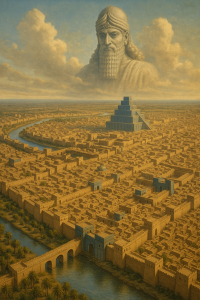 Marduk: Founder of Babylon, the Sacred Center
Marduk: Founder of Babylon, the Sacred Center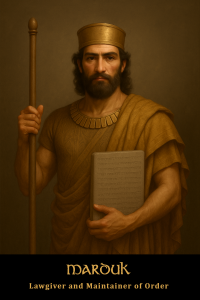 Marduk: Lawgiver and Maintainer of Order
Marduk: Lawgiver and Maintainer of Order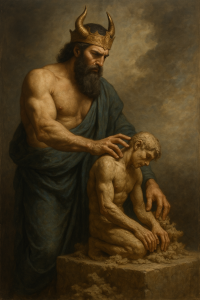 Marduk: Creator of Humanity
Marduk: Creator of Humanity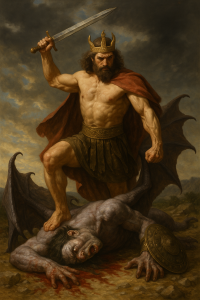 Marduk: Slayer of the Seed of Chaos
Marduk: Slayer of the Seed of Chaos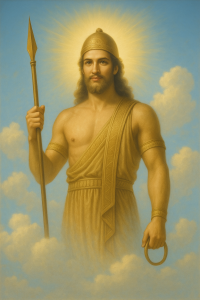 Marduk: Giver of Names and Lord of Definitions
Marduk: Giver of Names and Lord of Definitions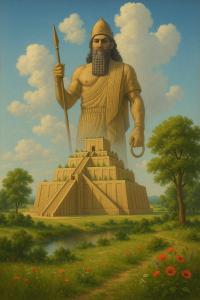 Marduk: Builder of the Sacred Abode
Marduk: Builder of the Sacred Abode